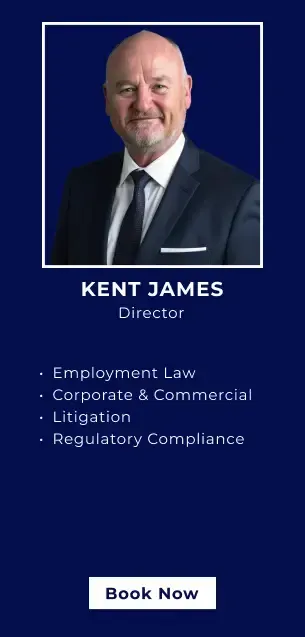Enforcement Proceedings Article
Once judgment is made against a debtor requiring the debtor to pay you a sum of money, it may be necessary to ‘enforce’ the judgment to ensure payment is received from the debtor. This process is referred to as enforcement proceedings and is the legal action to enforce the payment of a court judgment.
Applicable Time Limits
It is important to note that once a judgment is made, a creditor has six years to start enforcement proceedings under the Uniform Civil Procedure Rules 1999 (Qld) (“the UCPR”). Thereafter, it will be necessary to make an application to the Court seeking leave of the Court to commence enforcement proceedings against a judgment debtor. After 12 years, the Limitations of Actions Act 1974 (Qld) precludes a creditor from enforcing a judgment.
Final Letter of Demand
The first step to enforce a judgment is to issue a final letter of demand to the debtor advising the debtor that judgment has been made against them. Under the final letter of demand, the debtor is generally provided 7 – 21 days, depending on the amount payable to the judgment, to pay the judgment debt before further steps are taken by the creditor to enforce the judgment.
Enforcement Hearing
Should the debtor fail or refuse to pay the judgment debt as demanded in the final letter of demand, it will be necessary to commence the formal enforcement process. The first step under the formal process is to issue a statement of financial position to the debtor. The statement requires the debtor to answer a range of questions to disclose all relevant information about their income, expenses, assets and liabilities. The debtor has 14 days from the date of receipt to return the completed statement to the creditor.
If the debtor fails to return the statement of financial position within 14 days or the creditor is not satisfied with the extent of the information provided, the creditor may apply to the Court for an enforcement hearing. The Court will then issue a summons notifying the debtor they are required to attend the Court on a specified date to answer any questions the creditor may have or to provide any relevant financial documents such as bank statements or pay slips. Such information enables the creditor to make an informed decision about the conduct of any further enforcement hearings, including whether to proceed further and which is the correct course of action.
After an enforcement hearing, the creditor may then apply for various warrants or orders including, inter alia, an:
1) enforcement warrant for seizure or sale of property;
2) enforcement warrant for redirection of debts including regular redirections from financial institutions;
3) enforcement warrant for redirection of earnings; or
4) order for payment by instalments.
Enforcement Warrant for Seizure or Sale of Property
The issue of an enforcement warrant for the seizure or sale of property authorises an enforcement officer to seize and sell any real or personal property that the debtor has a legal of beneficial interest in. However, it is important to note the enforcement officer cannot seize basic household property such as necessary household furniture, or property the debtor requires to make a living such as tools.
Enforcement Warrant for Redirection of Debts
Rule 840 of the UCPR authorises the Court to issue an enforcement warrant for redirection of debts under which certain debts that are payable to the debtor by a third person are redirected directly to the creditor. In determining whether to issue this warrant, the Court will have regard to the necessary living expenses of the debtor and any dependants and any other liabilities of the debtor which they are liable to pay.
Enforcement for Redirection of Earnings
The warrant, also known as a ‘garnishee order’, is used to redirect the debtor’s earnings from a third party directly to the creditor. These warrants most commonly are applied to a debtor’s earnings from an employer under which the employer is required to deduct the amount specified in the warrant and redirect that amount directly to the creditor. The warrant remains in force until the judgment debt is satisfied or the warrant expires.
Order for Payment by Instalments
An order for payment by instalments is an order made by the Court which requires a debtor to satisfy a judgment debt through several instalment payments. The order may also be referred to as an ‘instalment order’. When determining the particulars of the instalments such as the instalment sums and the frequency, the Court must consider the debtor’s financial situation including the debtor’s means of satisfying the proposed order and the Court must be satisfied that the instalment order will not impose unreasonable hardship on the debtor.
Although engaging a solicitor is not compulsory, enforcement proceedings can often be complicated and procedurally complex. Accordingly, it is important to obtain proper legal advice to ensure your legal rights are protected and you achieve the best outcome. [The team at CJM Lawyers is experienced in the area of enforcement proceedings and can walk you through each step of the process, please contact our office to schedule a free initial consultation.]
Disclaimer: This article is for general understanding and should not be used as a substitute for professional legal advice. Any reliance on the information is strictly at the user's risk, and there is no intention to create a lawyer-client relationship from this general communication.
Contact Us Now!
For comprehensive legal services,
book now for your free initial consultation.
Contact Us
We will get back to you as soon as possible.
Please try again later.
Contact Us Now!
For comprehensive legal services,
book now for your free initial consultation.
Contact Us
We will get back to you as soon as possible.
Please try again later.
Our Latest Story



Our Latest Story



Our Latest Story



Our Client Say



Our Client Say



Our Client Say






























